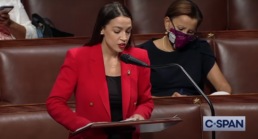We’ve been working with a number of clients since the start of the pandemic, helping them reach their key audiences in some of the most uncertain times any of us have lived through.
Today, it looks like the second wave of COVID has started again. Israel and the UK are locking down again. Ontario is reducing limits on private gatherings, and it’s looking like bars and indoor restaurants may be closed again. Line-ups at testing facilities are hours long, and hundreds of people are being turned away every day.
Now is a good time to remember the six key lessons we learned in the first wave:
- Tone is Everything: When it comes to communicating in a crisis, tone is as important as content. You’ve got to be clear, concise, and always start with empathy. People are much more likely to hear your message when they are assured that you understand how they’re feeling.
- Talk to your Own People: Reach out to your internal audiences first. Acknowledge what you know, but be up front about what you don’t (what Donald Rumsfeld called “the known unknowns, and the unknown unknowns”).
- Crisis Reveals Character: Your audiences are taking cues from you, and they’ll remember how you reacted, and what it says about you.
- Be Decisive and Resilient: In the first wave, many businesses took a long time to decide to close. That caused uncertainty and ultimately did more harm than good. Rip off the Band-Aid. Once it’s clear you need to move to your pandemic business model — and we have all learned new ways of doing business in COVID — get there, quickly and communicate decisively.
- It’s More Than COVID: We’re in midst of three overlapping crises – the pandemic, the recession, and particularly for our neighbours to the south, a time of great racial and political unrest. That complicates any effort to communicate, and it demands that we speak clearly and plainly.
- Remember the Stockdale Paradox: Finding the balance between optimism and realism is key. It’s called the Stockdale Paradox, named for US naval aviator James Stockdale, who was a prisoner of war in Vietnam for seven years. He suffered horrible physical and mental abuse, but found the strength to endure by keeping a balanced perspective. In discussing it with Jim Collins, author of the book Good to Great, Stockdale was asked who didn’t make it out of prison. “Oh, that’s easy,” Stockdale replied. “The optimists. They died of a broken heart.”
Today, as we enter a second wave of this pandemic, we have to strike that balance between a sober assessment of the challenges we face and a stoic belief that we will emerge on the other side of this crisis better and stronger. We must all work to champion and embody resilience in everything we do, and everything we say.
People will take note.
Curious Public
Curious Public Content and Insights simplifies the complex, finds your core message and makes sure it reaches your audiences.


